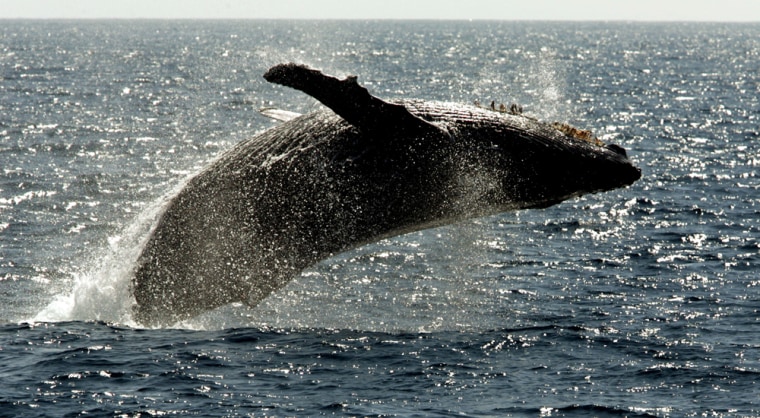Humpback whales were previously believed to be less social than other whales, but a new study found that they actually form friendships that last for years.
The researchers determined that the same whales reunited each year during the feeding seasons, according to the Mingan Island Cetacean Study, which was published in the journal Behavioral Ecology and Sociobiology.
Using photographs to identify the whales, the researchers recognized the same individuals coming back to meet up in the Gulf of St. Lawrence, where they feed and swim together every year during the summer season. While they also reunite in groups, the whales buddies separate into male/female or female/female pairs, the scientists found.
The longest recorded friendships spanned up to six years and occurred between mature female whales. Friendships between females and males never lasted this long, according to the study. Friendships between females have been shown to be beneficial to the humpbacks, as those that had the most stable and long-lasting relationships gave birth to the most calves.
"I was very surprised by the prolonged duration," Christian Ramp, a researcher with the Mingan Island Cetacean Study told the press. "I was expecting stable associations within one season, not beyond. I was particularly surprised by the fact that only females form these bonds, especially females of similar age."
Researchers are unsure of how exactly the baleen whales are able to locate and identify one another every year. Ramp theorizes that they whales seek out and detect their friends by using sounds called whale songs.
Scientists already knew that toothed whales, such as sperm whales, form strong relationships and associate with one another, but they had no previous records of baleen whales such as humpbacks maintaining long-lasting bonds.
Baleen whales are the largest of all whales and filter their food from water through baleen plates that resemble long, fine-toothed combs. Because of their specialized filter-feeding mechanism, these gentle giants mostly consume plankton and small schools of fish.
The Mingan Island Cetacean Study group, based in St. Lambert, Canada, has been documenting whale behavior in the Gulf of St. Lawrence since 1997. In cooperation with researchers from Germany and Sweden, the group also analyzed whale migration pattern data that stretch back 30 years.
The study's findings pose a question regarding whether baleen whales' social groups are being torn apart by commercial whaling.
